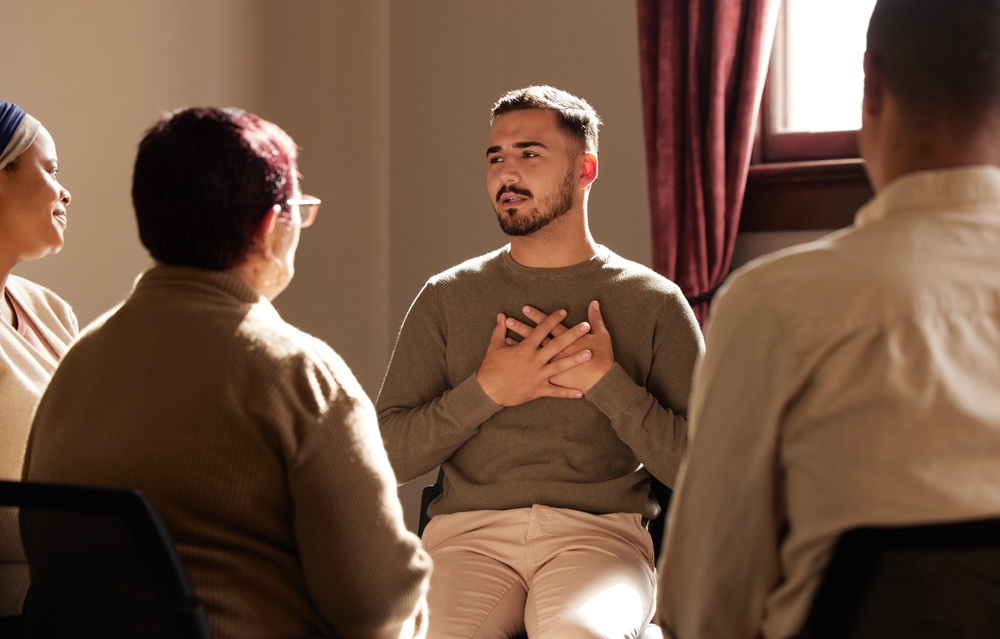Have you ever felt a deep-seated fear of falling in love or entering a relationship? If so, you might be experiencing philophobia. This fear can feel isolating, but understanding and overcoming it is entirely possible. Let's explore what philophobia means, its symptoms, and effective strategies to overcome this phobia, helping you embrace relationships with openness and confidence.
Jump to:
What is Philophobia?

Philophobia is the fear of falling in love or forming emotional attachments. The term originates from the Greek words ‘philo’ (love) and ‘phobia’ (fear), essentially translating to a fear of love. This condition is not just about a slight hesitation or nervousness about relationships; it is a powerful and often overwhelming fear that can prevent people from forming any romantic connections at all.
Recommended for you!
Best SellersSymptoms of Philophobia
Recognising the signs of philophobia is the first step towards addressing it. Common symptoms include:
- Intense Anxiety: When the prospect of a romantic relationship becomes possible, individuals might experience severe anxiety or panic attacks.
- Avoidance: Deliberately avoiding situations that might lead to emotional attachment, including social gatherings or deep conversations with potential partners.
- Physical Symptoms: These might include nausea, increased heart rate, or extreme discomfort when thinking about love.
- Emotional Distress: Persistent feelings of loneliness or sadness due to the self-imposed isolation from potential romantic partnerships.
- Reluctance to Engage in Future Planning: People with philophobia often shy away from discussing or even thinking about the future possibilities of a relationship. This could manifest as hesitance to make long-term commitments or plans, both in romantic relationships and in scenarios that could eventually lead to such commitments.
- Sabotage: People may unconsciously sabotage relationships that start to get too close or serious. This might include picking arguments, withdrawing emotionally, or finding faults in potential partners as a way to maintain distance.
- Hypervigilance: Those suffering from philophobia may be overly vigilant and sensitive to any signs that might suggest emotional danger. This can lead to misinterpretation of a partner's actions or words, seeing them as threats to personal well-being or autonomy.
- Trust Issues: Difficulty in trusting others, especially in romantic contexts, is a common symptom. People with philophobia may have underlying beliefs that relationships will inevitably lead to pain and betrayal, making it hard to trust partners and open up emotionally.
- Low Self-Esteem: Often, people with philophobia might feel unworthy of love or believe that they are destined to be hurt in relationships. These feelings of low self-worth can be both a symptom and a contributor to the fear of intimacy.
- Rumination: Frequent overthinking about the risks and consequences of becoming emotionally attached can plague people with philophobia. This rumination might include constant worry about potential heartbreak or the complexities of managing a relationship.
What Triggers Philophobia?
Often, past traumas or emotional wounds, such as a painful breakup, betrayal, or even parental divorce, can instil this fear. For some, witnessing unhealthy relationships while growing up can also set the stage for developing philophobia.
How Common is Philophobia?
While exact statistics on philophobia are hard to come by, it is a condition that many people experience. It is not as rare as you might think, making it important for those affected to realise they are not alone in their struggles.
7 Strategies to Overcome Philophobia

Overcoming philophobia involves a blend of self-awareness, professional support, and gradual steps towards emotional openness. Here’s a look at the strategies that can help you face and overcome your fear of falling in love:
1. Recognise and Acknowledge the Fear
Acknowledging the fear of love without self-judgement is key. Understanding that philophobia is often a response to past negative experiences allows you to approach your fear with compassion and a proactive mindset. This recognition is the first step towards disarming the power that this phobia holds over your life.
2. Therapy and Counselling
Professional help helps you effectively manage and overcome philophobia. Therapists, especially those trained in cognitive-behavioural therapy (CBT), can offer valuable insight into the origins of your fears. They provide practical tools to reframe your thoughts and reshape your perceptions about relationships, which can gradually dismantle the foundations of the fear.
3. Gradual Exposure
Ease into relationships through gradual exposure. Begin by engaging with relationship-themed content, such as books, movies, or articles that promote a positive view of love and partnerships. Progress to developing deeper friendships or participating in group activities that encourage social connections without the pressure of romance. These steps help build your comfort level with emotional closeness at a manageable pace.
4. Communication
Honest communication plays a role in reducing the fears associated with philophobia. By discussing your anxieties with potential or current partners, you encourage an environment of transparency and understanding. This can greatly reduce the stress you feel about misunderstandings or unmet expectations in a relationship, making it easier to navigate your fears.
5. Self-Compassion and Patience
Treating yourself with kindness and patience is essential as you work through your phobia. Change is gradual, and overcoming philophobia is no exception. Celebrate small achievements, such as being able to discuss your feelings with others or staying calm in romantic situations. Each small step is a part of a larger journey towards healing and opening yourself up to love.
6. Support Groups
Joining a support group where you can share your experiences and hear others' struggles with philophobia can be immensely comforting. Knowing you are not alone in your journey can boost your confidence and provide you with alternative coping strategies that have been effective for others.
7. Mindfulness and Relaxation Techniques
Practising mindfulness and relaxation techniques can help reduce the anxiety associated with philophobia. Techniques like deep breathing, meditation, or yoga can centre your thoughts and calm your body, making you less reactive to the fears triggered by thoughts of romance and attachment.
How to Love Someone With Philophobia

If your partner is the one facing philophobia, patience and understanding are key. Encourage open dialogue, provide reassurance, and be willing to move at a pace that is comfortable for them. Professional support may also be beneficial for both of you.
Frequently Asked Questions About Philophobia
What is the Difference Between Gamophobia and Philophobia?
While both gamophobia and philophobia involve fear related to relationships, they target different aspects. Gamophobia is the fear of marriage or being in a committed relationship, focusing specifically on the legal and formal aspects of a long-term commitment. In contrast, philophobia encompasses a broader fear of emotional attachment and falling in love, regardless of marital status.
Is Philophobia a Mental Illness?
Philophobia itself is not classified as a mental illness in diagnostic manuals such as the DSM-5 (Diagnostic and Statistical Manual of Mental Disorders). However, it is a specific phobia that can significantly impact your emotional well-being and quality of life. Like other phobias, it can be intense and persistent, warranting professional psychological treatment to manage and overcome.
How Do People with Philophobia Act?
People with philophobia may exhibit behaviours aimed at avoiding any situation that could lead to emotional intimacy. This can include avoiding dating, cutting off relationships before they become serious, or withdrawing from social interactions that might lead to emotional connections. Their actions are often protective mechanisms to avoid perceived threats of emotional pain.
How Do You Fix Philophobia?
Fixing philophobia typically involves therapeutic interventions such as cognitive-behavioural therapy, which helps reframe negative thoughts and fears about love. Other supportive measures can include gradual exposure therapy, where people slowly face their fear in controlled steps, and relationship counselling to address specific issues in a partnership.
How to Love Someone with Philophobia?
Loving someone with philophobia requires patience, understanding, and gentle encouragement. It’s important to communicate openly, ensuring that they do not feel pressured or overwhelmed. Building trust gradually and supporting their journey towards overcoming their fear can strengthen the relationship and help them feel safe and valued.
What Triggers Philophobia?
Triggers for philophobia can vary widely but often involve past traumatic experiences related to love, such as betrayal, abandonment, or emotional abuse. Witnessing unhealthy relationships during formative years can also contribute to developing this fear.
How Can You Support Someone With Philophobia?
Supporting someone overcoming philophobia involves being a compassionate and supportive partner. Encourage them to seek professional help, be patient with their progress, and provide a safe space for them to express their fears and anxieties. Regular reassurance and understanding can make a significant difference in their healing process.
Recommended for you!
Best SellersEnhance Your Relationship Insights with Centre of Excellence
If you're keen to explore the complexities of human relationships and learn effective strategies to manage fears like philophobia, our Relationship Psychology Diploma Course is designed just for you.
Why Centre of Excellence?
- Accessibility: We are committed to making transformative education accessible to everyone. That's why we've priced our Relationship Psychology Diploma Course at an affordable rate, ensuring that all those eager to learn can join us.
- Flexibility: Our courses are structured to blend smoothly into your lifestyle. You can progress at your own pace and fit your learning around your existing commitments, making it easier than ever to achieve your personal development goals.
- Dedicated Support: When you enrol, you'll receive personalised tutor support and become part of a thriving community of like-minded individuals. This network provides motivation and encouragement throughout your educational journey.
Special Invitation
We are delighted to offer the Relationship Psychology Diploma Course for just £29, saving you over £100!













